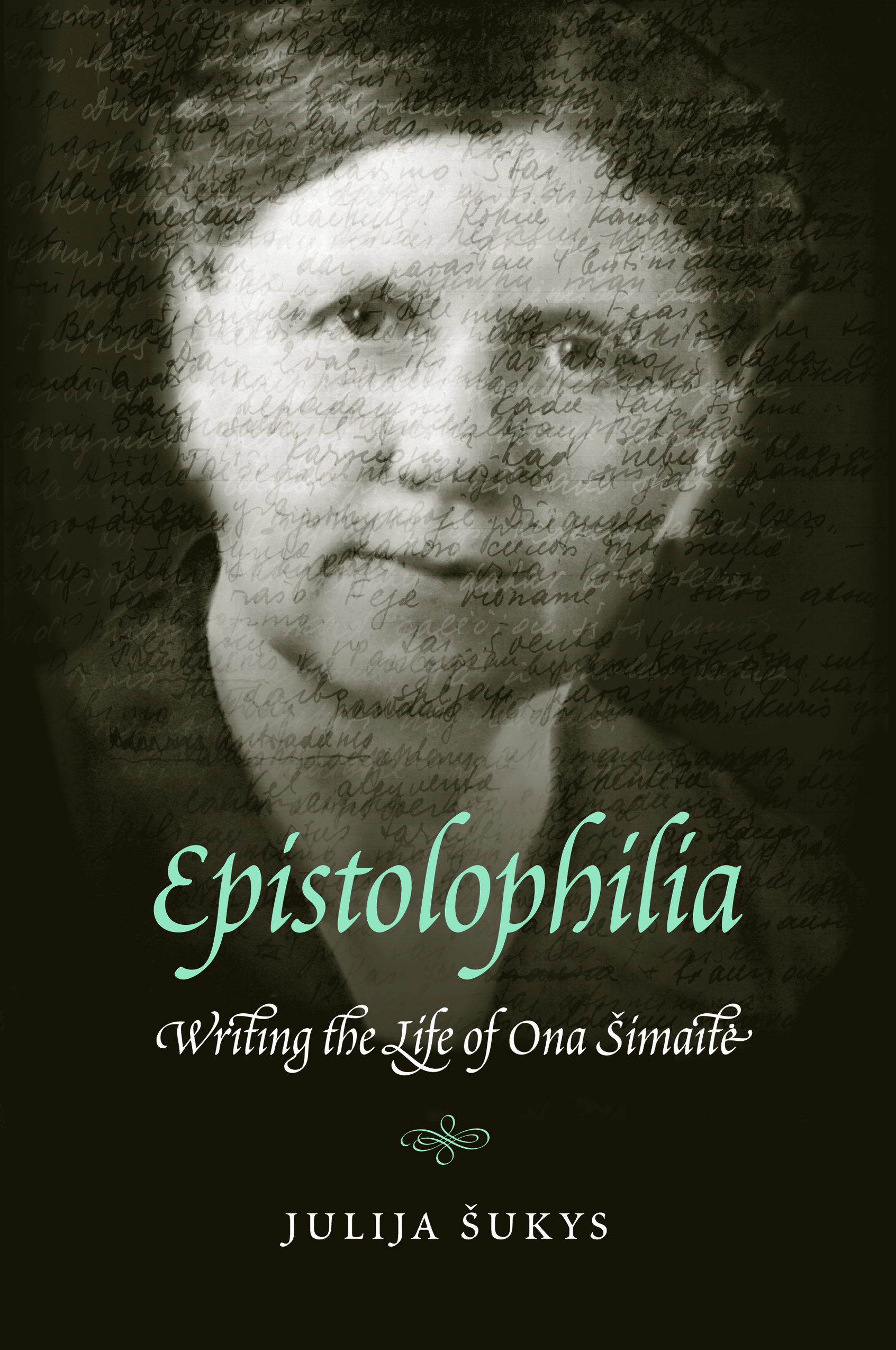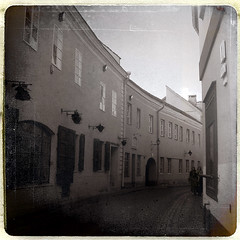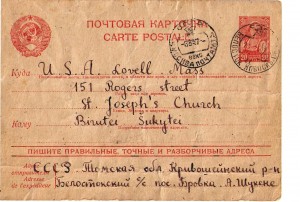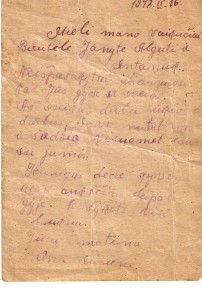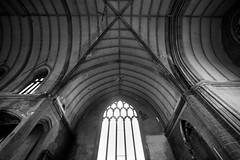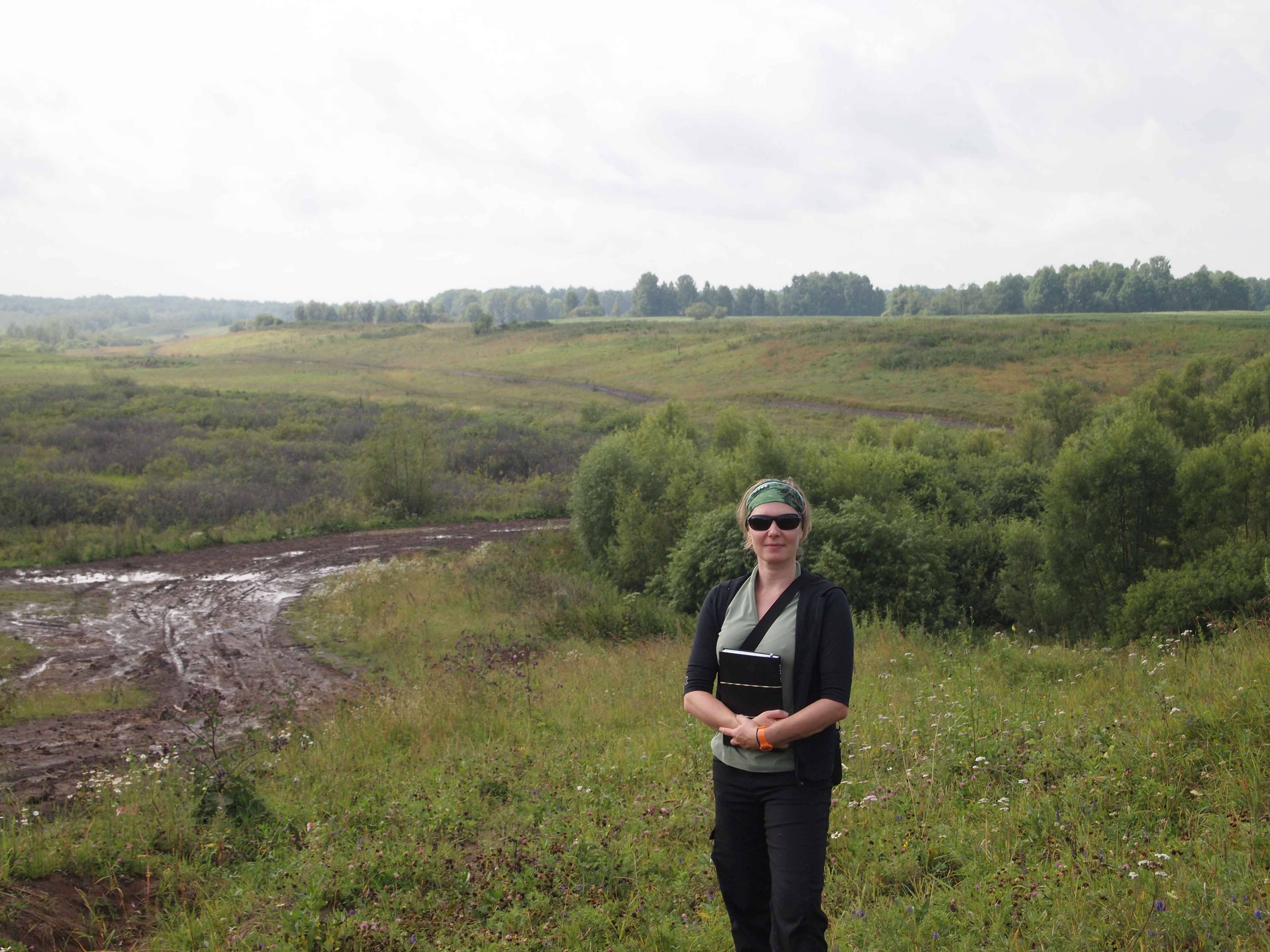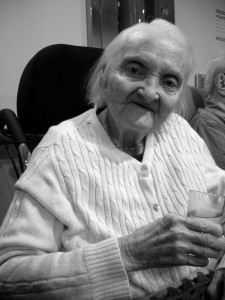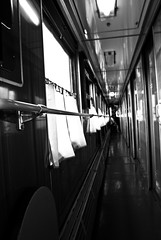
I’ve finally started writing my new book, Siberian Time, in earnest. It will tell the story of my grandmother’s 17-year exile to Siberia. Inevitably, too, it will tell stories about my family members: my father, his sisters, my cousins, my grandfather.
Because my chosen forms are the personal essay and creative nonfiction, I almost always appear in my work. Often too, there are traces of my husband and son, simply because they’re always around, and life with them colours everything I write and do. But until now, the prism of my life has been a tool for bringing someone else’s story into focus. My life, and that of my family, have never been at the centre of a project.
Until now.
So, I’ve just finished writing a lengthy essay about my 2010 trip to Siberia, when I travelled for four days by train across Russia to find the village where my grandmother was forcibly exiled. My cousin Darius came with me, and turned out to be the perfect companion. Before leaving, I warned him (with a laugh, but nevertheless deadly serious) that he would inevitably end up in my book, and he assured me that this was cool with him. Little did he suspect that my first piece of real writing stemming from our trip would be all about him.
For a long time I blamed the wound of my grandmother’s exile for the premature deaths of two of her three children. My father died suddenly of a heart attack when I was eighteen, and his sister (Darius’s mother) died of cancer about four years later. But only after returning from Siberia did I start really to wonder how my grandmother herself survived. Though it wasn’t so much about Siberia that I wondered, but Canada.
My grandmother arrived in this country in 1966, reuniting with her children after 24 years of separation. The six-year-old boy she’d left in Lithuania (my father) was balding, married and approaching middle age the next time she saw him.
The piece I’ve just finished asks the question: How do you survive when faced with incontrovertible evidence that life has passed you by? My answer: my cousin Darius. I explore the idea that he was her second chance.
My essay (currently titled “Trans-Siberia: Like Birds Returning Home”) narrates some painful memories that my cousin, who was in large part raised by our grandmother, shared with me on the train to Siberia. It also tells of our trip and of what we learned. Once I finished, I was pleased with my resulting text, but worried that I’d overstepped a line of privacy. The memories I used in my writing were not mine, and I felt I needed to ask permission before putting them out in the world.
So, I braced myself, and sent the text to Darius.
His response has been beyond encouraging. My cousin wisely counsels me to continue on, not to censor myself, and to be fearless. Nonetheless, I still feel a bit of uneasiness, and maybe that’s not so bad.
I recently reviewed Stephen Elliott’s memoir The Adderall Diaries. In it he states that he doesn’t seek approval from those he writes about. And though I absolutely understand why he wouldn’t, and don’t disapprove, I nonetheless continue to feel a responsibility to those whose memories I use. I’m not sure how much vetting I’m prepared to invite or allow as the book progresses. You can’t please everyone, true, but to what extent are we answerable to those whose lives intersect with what we write? For me, this remains an urgent question.
I’d love to hear about others’ experiences in this area. Have you written something using others’ memories or experiences? Did you allow for vetting or approval? Did you suffer a backlash? What is the biographer’s or memoirist’s responsibility to the lives she borrows for her work?
(NB: My essay is still a draft and destined for an anthology about exile. I’ve given it to a trusted friend for feedback, and will announce its appearance in print once that happens.)
[Photo: supercanard]




